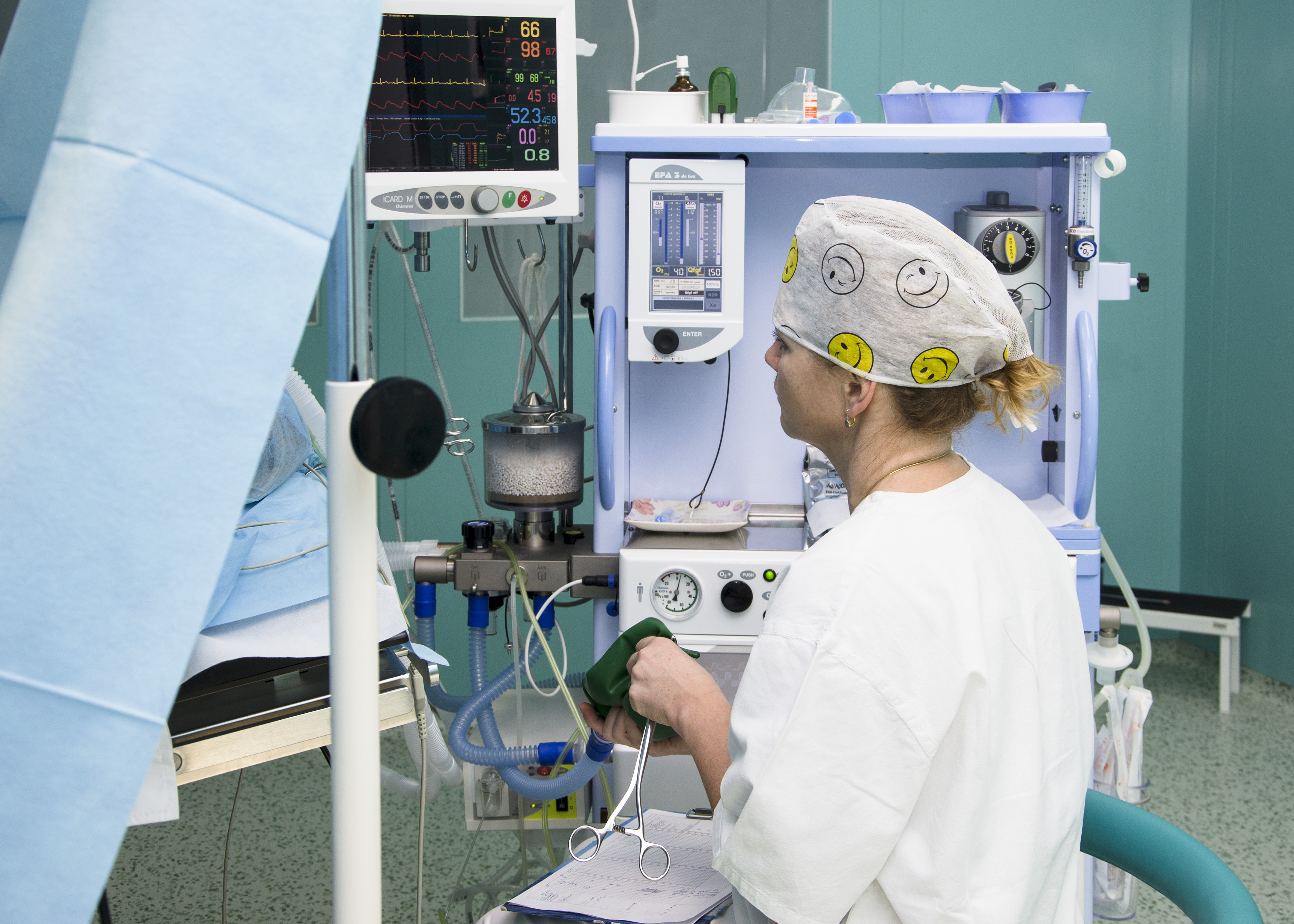Instructions before general anesthesia
 General anesthesia
General anesthesia
Induced controlled state of unconsciousness and last from the beginning to the end of surgery. Before the administration of anesthetics, patients are given premedication, which is usually 30 minutes before the surgery. Pre-medication is used to reduce preoperative stress and as the lighter form of introduction to anesthesia. Anesthesia itself begins by administration of anesthetics, intravenous or inhalation anesthetic gas.
Local anesthesia
Prevents the perception of pain only in certain parts of the body, in the area of operation. Local anesthesia is usually applied directly to the area of surgery or to the area near the nerves which head pain from the surgical site.
Food and fluids intake
To prevent inhaling vomit during and after the surgery, patients must have an empty stomach. Patients can eat 6 hours before the surgery for the last time and drink only clear liquids (water, tea) 2 hours before the surgery. Patient can drink after waking up from anesthesia after the surgery, recommended are clean liquids received in small doses. Several hours after surgery, patient may eat a light vegetarian diet.
After-surgery pain
Patient should not feel more pain immediately after the surgery, whereas the effect of analgesics administered during surgery or the effect of local anesthesia persists for several hours. On release we will instruct you on the use of analgesics, which you have certainly at home (Panadol, Nurofen, Ibalgin…)
What to bring with you to the surgery:
Pajamas, slippers, toiletries.
Medical documentation + preoperative evaluation results.
Inform us about:
Allergies to medications and food.
Chronic diseases of the heart, lungs, kidneys, blood…
The manifestations of increased bleeding during normal accidents or previous surgery.
The chronic use of medications; their using before surgery is necessary to consult with the anesthetist.
Complications with previous surgery or anesthesia.
Removal dental braces, moving teeth or piercing.
No anesthesia is without a risk.
However, serious and life-threatening complications are extremely rare. Rate of risks is reduced by appropriate choice of the type of anesthesia and anesthetics, monitoring vital signs during and after the operation and by using our experience in anesthetics. You can also contribute to reduce the risk which comes with surgery and anesthesia by keeping our instructions and by consistent and correct filling out the questionnaire, that you confirm by your signature after the interview with anesthetist.
